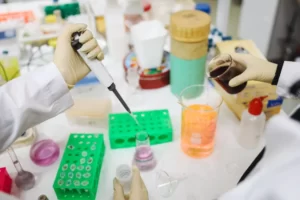
The Hidden Dangers of Taking Antibiotics: Did Your Doctor Tell You This?
There is growing awareness of the dangers of antibiotics. Not only are bacteria developing antibiotic resistance at an alarming rate, but research from the University of Virginia School of Medicine has found that antibiotic use can also make the gut microbiome and immune system more susceptible to disease. Additionally, a 2023 study published in the journal Cell Reports Medicine found that prior antibiotic use can negatively impact immune responses by reducing the diversity of the gut microbiome and altering the immune system’s function. The study showed












